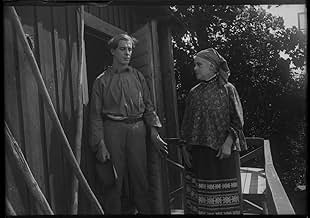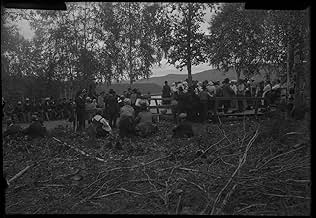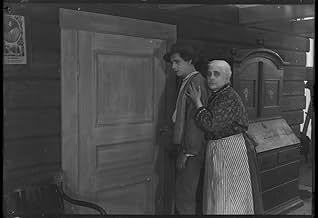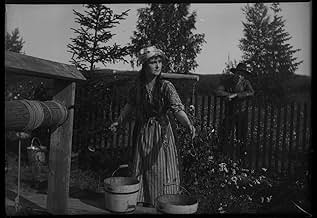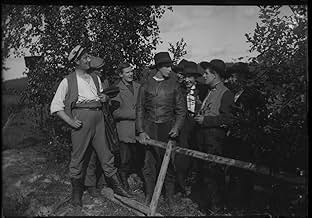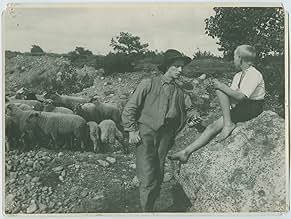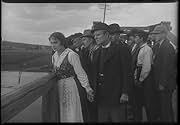This is not amongst my favourite Stiller films. The whimsical style of the curious 1905 Finnish (verse?) novel on which it is based, Laulu tulipunaisesta kukasta is more than a shade irritating although, it is true, that it makes a pleasant change in some ways from the rather over-substantial diet of Selma Lagerlof that formed the basis for so many Swedish films of the period. Nor do I find Lars Hanson at his best in these more manly role in which he was sometimes cast and for which he does not really have the "carrure". As with Cocteau and Jean Marais (who was however a more genuine cascadeur), one suspects Stiller was himself more than a little starry-eyed about his young star at this point in their respective careers.
The narration in demi-detached chapters is too patchy to provide good continuity. In the distinctly dark sixth chapter, there is a fine scene where Olaf talks to himself in a mirror as though to his "double" (evidently influenced by the German classic Der Student von Prag) but, excellent though the scene is, one is not very clear on how one has arrived at that point. And the morality of the final chapter is, to say the least, odd.
The compensation is the superb (as ever) cinematography of Henrik Jaenzon and the evocation of life amongst the river log-drivers. Had there been rather more of this and rather less of Hanson's romancing, it could have been a very good film....
I shall leave this world where men are men with a touch of the equally whimsical style of Herr von Galtizen which we all know in love, in words graven on the hearts of every true Marxist*, that I shall now myself return to the closet where men are empty overcoats.
*tendance Groucho, need I say.

